Top 9 ManageWP Alternatives To Manage Multiple Sites Easily [Reviewed]
by
7-layers of Security for Your WordPress Site
Your website needs the most comprehensive security to protect it from the constant attacks it faces everyday.
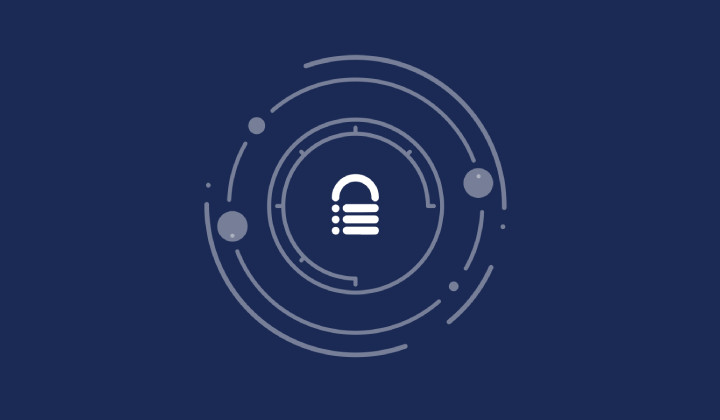
ManageWP is a popular name in the WordPress maintenance plugins market. People love how much you get for a free plan, how easy it is to set up, and how intuitive the dashboard is. Unfortunately, that is where the good news ends. Once we started to test them, we were quickly looking for ManageWP’s alternatives.
When we added our sites to ManageWP’s dashboard, we found that it was very slow. You have to keep resyncing your sites. Some users have complained about having to remove a site and add it again because the dashboard wouldn’t reflect data.
We also have to acknowledge the costs. The costs also seem lower, initially, but, as your agency grows, ManageWP becomes a more expensive investment.
Whatever your reason might be for wanting to switch, this article is here to help. We tested ManageWP alternatives and put together a list, where we cover everything from pricing and features to our user experience.
TL;DR: If you are looking for an alternative to ManageWP, we recommend that you install WP Remote. It keeps your sites safe, updates everything with one click, and doesn’t slow down your website. Plus, it has great support if you need help.
When we tested ManageWP,we found some flaws that we couldn’t look past. For example, the malware scanners didn’t pick up on any of the malware on our hacked site. We were also disappointed that they didn’t store backups offsite. This led us to test a bunch of alternative management tools as well.
We tested the top plugins for this article by using a blog and a hacked site that were about 700MB each. We tested them on the basis of backups, security, bulk updates, reporting feature, performance monitoring, and usability. In this article we will give you all the information you need. Here is a snippet of what we found:
| ManageWP | WP Remote | WPMU DEV | MainWP | |
|---|---|---|---|---|
| External dashboard | ||||
| Reliable malware scanner | ||||
| Malware cleaner | ||||
| Firewall | ||||
| Offsite backups | ||||
| Safe bulk updates | ||||
| Performance monitoring | ||||
| Reporting | ||||
| Easy to use |
1. WP Remote [RECOMMENDED]
WP Remote is a user-friendly tool designed to streamline and secure the management of WordPress sites. Packed with a robust suite of management features, this platform addresses nearly every need a WordPress site owner could have.
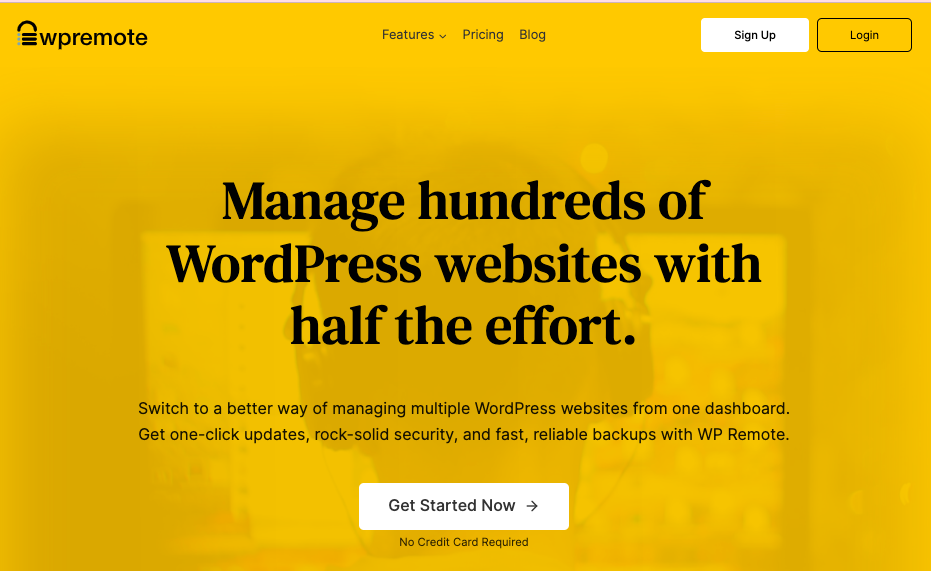
First and foremost, WP Remote simplifies the update process with its UpdateLens feature. This feature uses an intelligent algorithm to score how safe an update is. The plugin also takes backups before any updates are applied. You can also create a staging site for testing updates before you go live with them. This makes the updating process as safe as it could be.
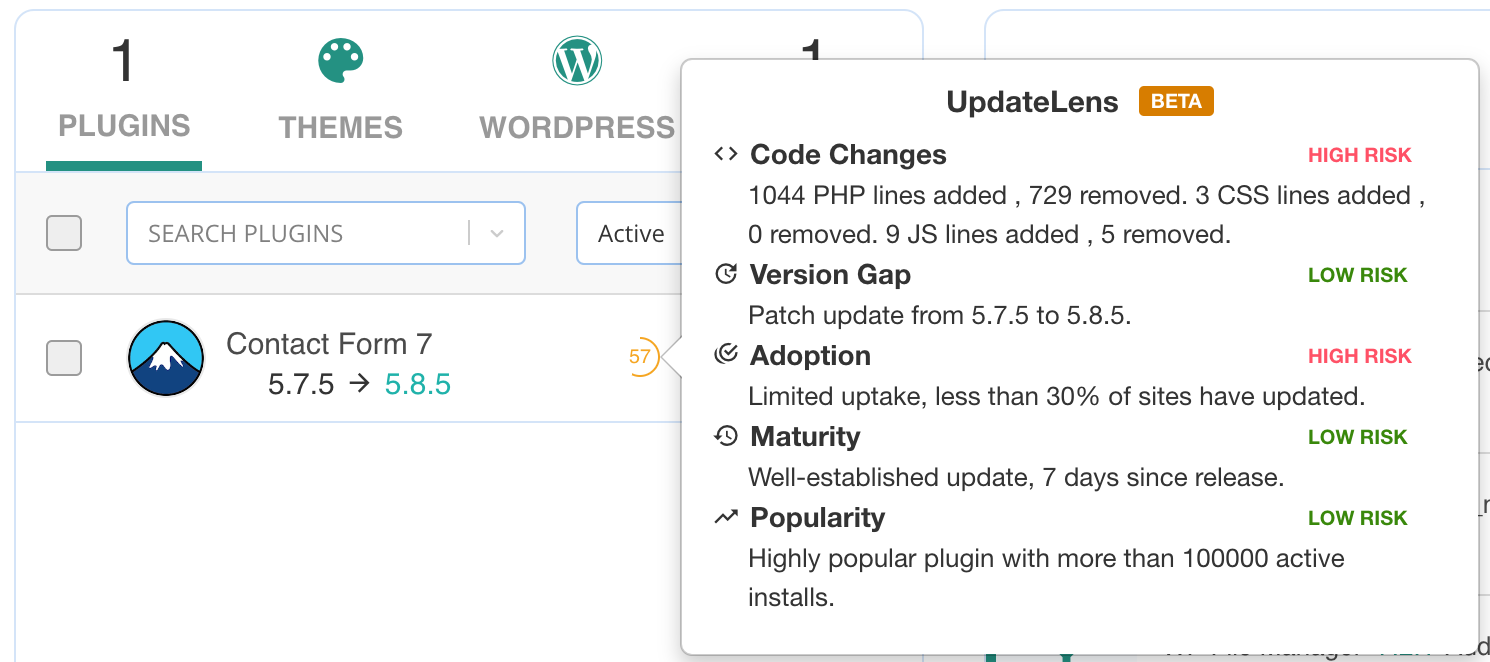
The backups themselves are designed to be as lightweight as possible, using incremental and offsite backups that don’t overload your server. They’re also easy to schedule and automate, and can be restored in 1-click.
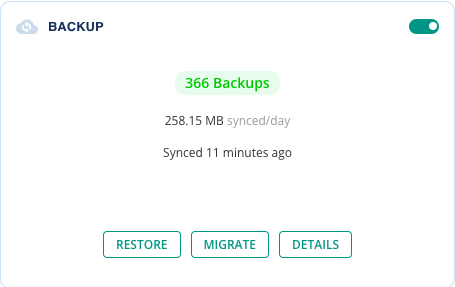
WP Remote also has a great suite of WordPress security features. It comes with a reliable malware scanner, firewall, and malware cleaner. The scanner and firewall can find and block zero-day malware as well. The firewall also blocks bots, limits failed logins, and protects against brute force attacks. It also has a vulnerability scanner that picks up on vulnerabilities in plugins that need to be updated. Considering that vulnerable plugins are one of the most popular hacks, this can be crucial.
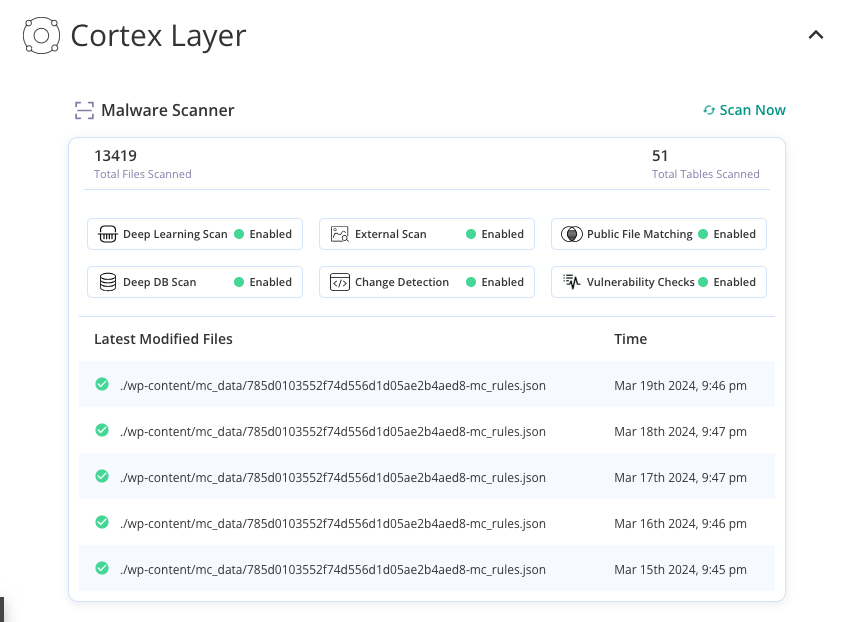
You can also track your site’s vitals on the WP Remote dashboard. All of these stats can also be conveyed to your clients. This tool allows for custom solutions through customizable reporting with white labeling. This helps you provide a professional touch when preparing reports for clients or internal reviews.
The interface is clean and intuitive. It puts all necessary controls at your fingertips, making site management straightforward and hassle-free. Whether you’re managing one site or multiple, the dashboard allows quick access to all vital functionalities. WP Remote can also enhance your site’s performance through seamless integration with the speed plugin, Airlift. You also won’t have to worry about downtime as WP Remote’s uptime monitoring with real-time alerts keeps you informed around the clock.
Key features
- Malware scanning
- Malware removal
- WordPress firewall
- Bot protection
- Failed logins limiting
- Vulnerability scanning
- Offsite backups
- Incremental backups
- Bulk updates
- UpdateLens
- Staging site
- Reporting
- White labeling
- Performance monitoring
- Uptime monitoring
Pros
- Reliable backups and security
- User-friendly interface
- Responsive support team
- Frequently updated
Cons
- No free version
Price
Plans start at $29 a month for managing up to 5 sites.
Final thoughts
WP Remote is the best ManageWP alternative because they have a better malware scanner, affordable pricing and a user-friendly interface. We found that the ManageWP scanner was completely useless. It did not identify any of the malware on our hacked site. This left us worrying about the security of sites that were managed by them. In contrast, WP Remote’s malware scanner caught all the malware in minutes. This reliability makes WP Remote an obvious choice for users prioritizing website security.
Additionally, how these platforms are priced further differentiates them. ManageWP starts with a base cost and increases as more sites or features are added. For owners or managers of multiple websites, this can quickly become expensive. This becomes particularly evident when managing around five sites. For example, if you invest in ManageWP’s premium add-ons, it totals to $9 a month, per site. So, for sites, it’s a total of $45 a month. In contrast, WP Remote is $29 a month for 5 sites. This makes WP Remote’s pricing far more affordable.
Furthering the case for WP Remote is the user experience offered by its dashboard. Compared to ManageWP, whose users often report bugs and navigation issues, WP Remote boasts a well-designed dashboard that is easier to navigate and less prone to technical glitches. This reduces the time and effort required for site management tasks. Together, these factors make WP Remote a compelling alternative to ManageWP for WordPress site management.
2. WPMU DEV
WPMU DEV’s automatically takes backups before updates, ensuring that you can always revert to a previous state if something goes wrong. It also has a feature that notifies you if an update fails. This more than what some other plugins on this list offer, but it is still not ideal. There should be a way to test out your updates before running them.
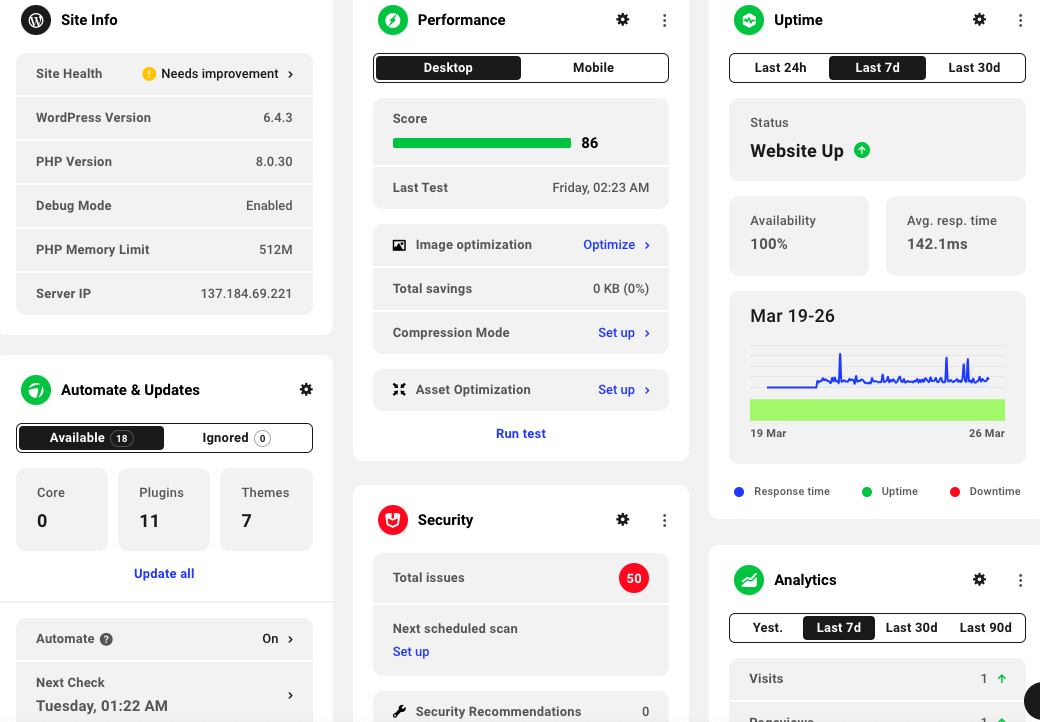
On the security front, WPMU DEV uses Defender Pro and the malware scanner found all the malware. However, there is no inbuilt malware cleaner. Moreover, there is a message that says that the scan results may have false positives. It is also essential to note that a firewall feature is only available for sites hosted with WPMU DEV.
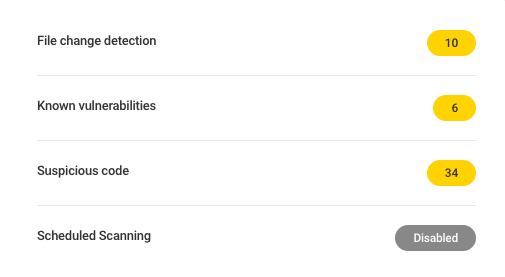
For those who manage sites for clients, WPMU DEV offers an easy reporting feature. This tool is highly customizable with white labeling options, helping generate tailored reports. It can match your brand or your clients’ branding, thereby enhancing the professional presentation of your managed services.
It has an easy setup process, and once you are up and running, you’ll appreciate the visually-appealing and user-friendly dashboard. This dashboard makes it easy to access and control various features such as performance and uptime monitoring. This ensures that you’re always aware of how your sites are performing and are immediately alerted to any downtime or performance issues.
They do not have a free trial or a free version. WPMU DEV’s pricing can also be pretty expensive. Their lowest plans are $15 for a site, per month,
In summary, WPMU DEV offers a blend of essential management tools, security features, and customization options wrapped in a user-friendly interface, ideal for anyone looking to effectively oversee and safeguard their WordPress sites.
Key features
- Automated backups
- Offsite backups
- Safe updates
- Visual checks
- Malware scanning
- White labeling
- Uptime monitoring
- Performance monitoring
Pros
- Great support
- Comprehensive features
- Intuitive dashboard and setup
Cons
- No free trial
- Some features are dependent on hosting
- No malware cleaner
Price
The subscriptions range from $30 a month for 1 site to $200 a month for unlimited sites.
Final thoughts
WPMU DEV can be a great alternative to ManageWP. Apart from WP Remote, it was the only plugin that was able to identify the malware in our site. This can be a huge help when managing multiple sites. However, we were disappointed with how malware removal and a firewall are not features that they offered to all users.
Another significant aspect is how differently both plugins handle website updates. While both allow for easy bulk updates, WPMU DEV takes this a step further by routinely taking backups before implementing any updates. While this is not foolproof, it is something. Something is always better than nothing.
Our WPMU DEV review is that it is not the best but it can definitely help with WordPress management.
3. CMS Commander
CMS Commander’s call to fame is the ease with which it helps with bulk content management. You can install plugins in bulk and publish posts across all your sites. This was not a very helpful tool for us. But maybe it is for you.
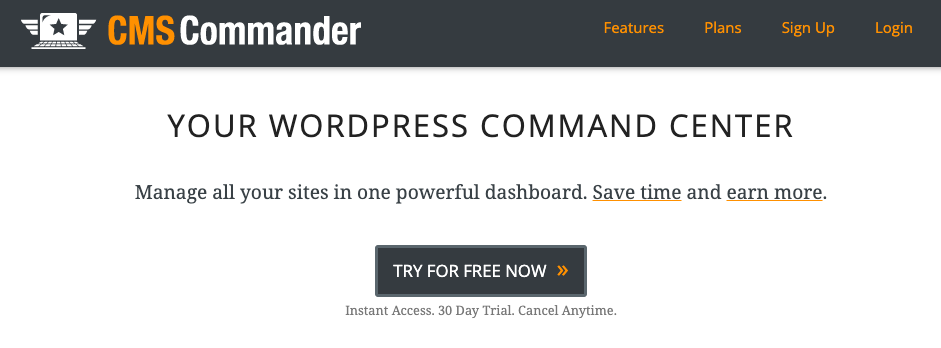
However, our evaluation of CMS Cmmander also highlighted some areas of concern, particularly in terms of site security. The malware scanner included in the tool failed to detect any malware in our tests. They’re also missing a firewall and a malware cleaner within the platform further compounds the security limitations, posing a significant challenge for users who require stringent security measures.
Setting up CMS Commander proved to be less straightforward than anticipated. The setup process was not simple. You had to install and activate the plugin on each individual site. Each site also had a unique activation code that needed to be added to the dashboard. It took about 10 minutes for our 2 test sites. This would be a lot more difficult and time-consuming if you are managing multiple sites.
Additionally, the reporting feature was disappointing. Despite all our testing, the only thing that it registered as an activity to report was the fact that we logged in. Your clients would want to know about scans and updates, and whether or not they were successful.

Key features
- Bulk updates
- Bulk post management
- Bulk plugin installation
- Duplicate website settings
- Backup and restore
- Backlinks monitoring
- Performance monitoring
- Google Analytics integration
- Two-factor authentication
Pros
- Bulk content management
- Bulk plugin management
Cons
- Bad malware scanner
- Bad reporting feature
- Complicated setup
Price: Subscriptions start at $8 a month for up to 5 sites.
Final thoughts
We’ve got a detailed review of CMS Commander that can give you more details. But, it was not our favorite. We would have to note that on the security front, they both fail. They’re both about the same on the backups and bulk updates features. But CMS Commander took longer to set up and the reporting feature was pointless. We would only pick CMS Commander if you have a very specific need to manage content in bulk.
4. WP Umbrella
The next ManageWP alternative is WP Umbrella. We approached the plugin with optimism. The dashboard was incredibly intuitive and user-friendly. It was so simple to use and set up too.
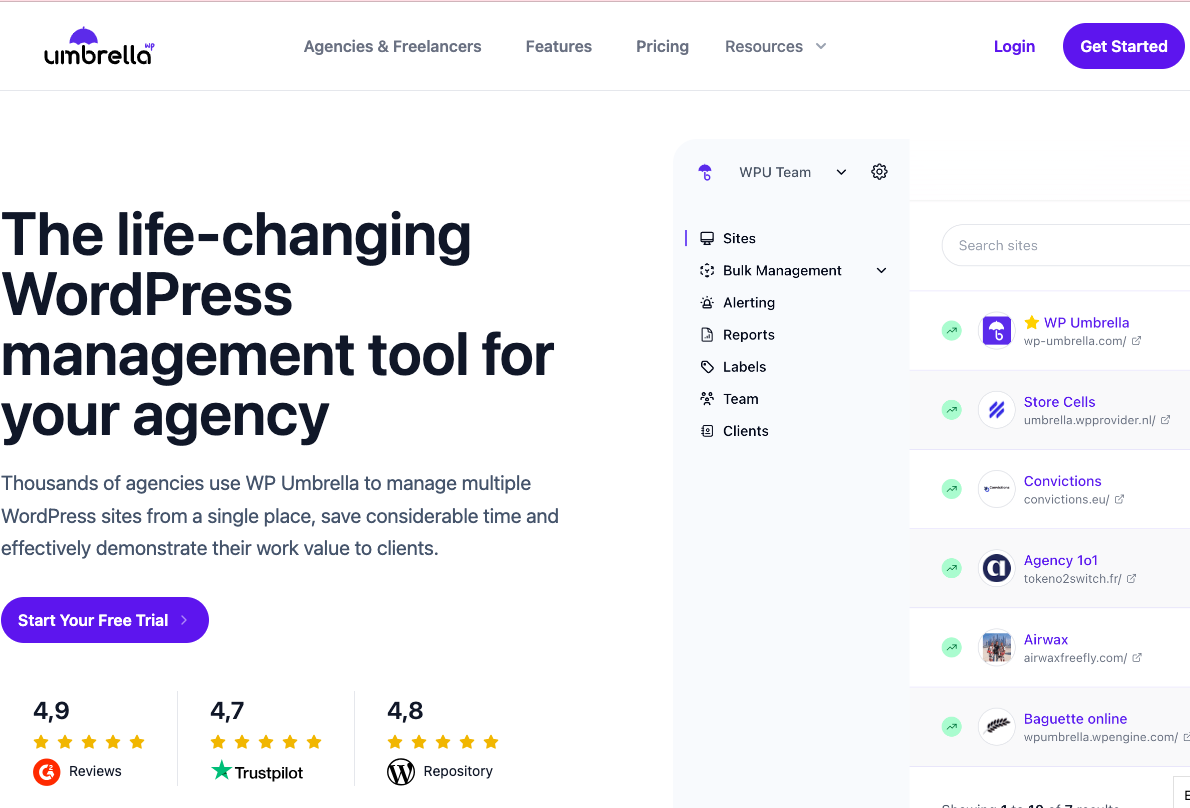
When we started to test it, we found that the reporting feature is great and is the only feature that was worth mentioning. You could customize every aspect of your report from the content it contains to the way it looks.
However, the backup process was slow. A site of less than 700MB took over an hour to backup. They also have a warning that it might impact your server resources. Their solution is to schedule backups for times when your site doesn’t have a lot of traffic. But your the best backup plugins will not affect your server resources at all. Ideally, i
Furthermore, the security aspect was a disappointment. They didn’t have a malware scanner. They only had a vulnerability scanner which is not enough. There was also a security check that audited your general security. These issues paint a mixed picture of WP Umbrella, showing a tool with great potential yet hampered by crucial operational inefficiencies.

Key features
- Customizable reports
- Automatic backups
- Vulnerability scanner
- Bulk updates
Pros
- Great dashboard
- Really nice reporting feature
Cons
- Slow backups
- Backups affect server load
- No malware scanner
Price
The premium subscription costs $1.99 per month for each site.
Final thoughts
Overall WP Umbrella isn’t too bad. We really liked their reporting feature and their dashboard was amazing. But, we wish they had more security features.. A firewall and reliable malware scanner would be great. Their backups would ideally bestored offsite and not effect the server either.
After our review of WP Umbrella, we think ManageWP does backups better and wP Umbrella does reporting better. Depending on your needs, this could be helpful.
5. InfiniteWP
The free version of InfiniteWP covers basic maintenance tasks such as backups, updates, and activity monitoring, accommodating fundamental WordPress management needs. However, for more comprehensive features like advanced security measures and detailed reporting functionalities, users are required to subscribe to the premium plan.
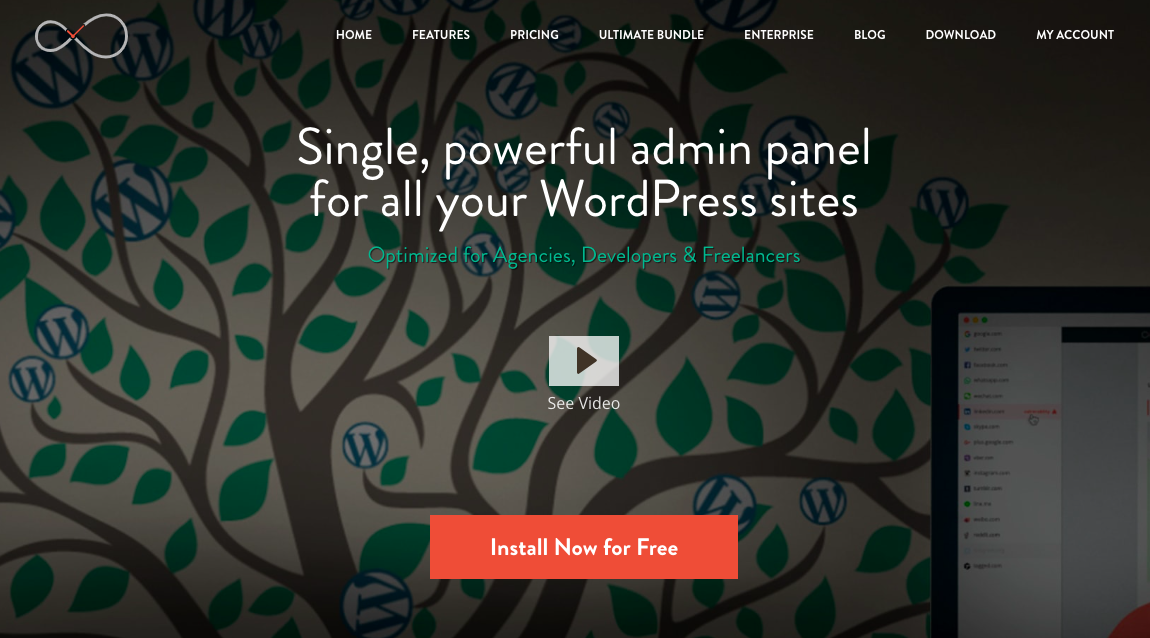
Another unique aspect of InfiniteWP is its self-hosted setup, which involves installing its dashboard on one of your WordPress sites or on a designated subdomain. Each site you wish to manage is then connected via a ‘child’ plugin. This setup gives users greater control over their data and the management processes, appealing to those who prioritize data privacy and customization. However, this method has its own challenges. For instance, if the main site hosting the dashboard encounters security issues, it could risk compromising all connected sites. Also, if anything happens to the dashboard site and it is unreachable, the child sites cannot be managed during that time.
Moreover, the initial setup process can be cumbersome. It took us 10 minutes to configure the dashboard for a handful of sites. This can be a considerable drawback for agencies or individuals managing a large number of sites, where simplicity and speed are pivotal.
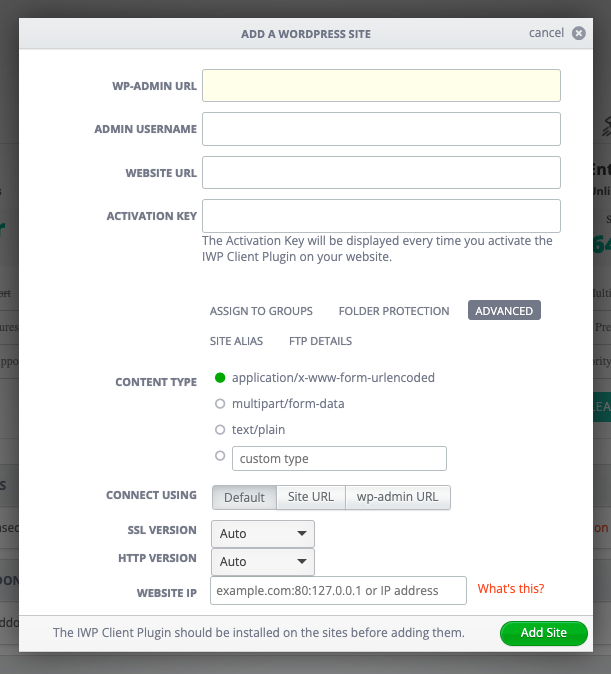
If you’re looking for a ManageWP alternative because of how slow the dashboard is, then InfiniteWP is not for you. IT is just as slow, if not more. You have to resync the site for any changes to reflect.
Key features
- 1-click admin access
- Bulk updates
- Backups and restores
- Malware scans
- Uptime monitoring
- Custom reports
- Broken link checking
- Performance monitoring
Pros
- Good set of free features
Cons
- Time-consuming setup
- Self-hosted dashboard
- Limited free features
Price
Subscriptions range between $147 for 10 sites and $647 a year for unlimited sites.
Final thoughts
If there was a ManageWP vs InfiniteWP match, ManageWP would win. We were unable to test important InfiniteWP features like security and reporting. But, from research, we know that they use Wordfence for security. We’ve tested Wordfence before and have mixed feelings about it. They only scan 60% of your site with their free version. But, they fared far better than the other WordPress security plugins that we tested.
6. MainWP
MainWP is another popular tool for managing multiple WordPress sites from a single dashboard.
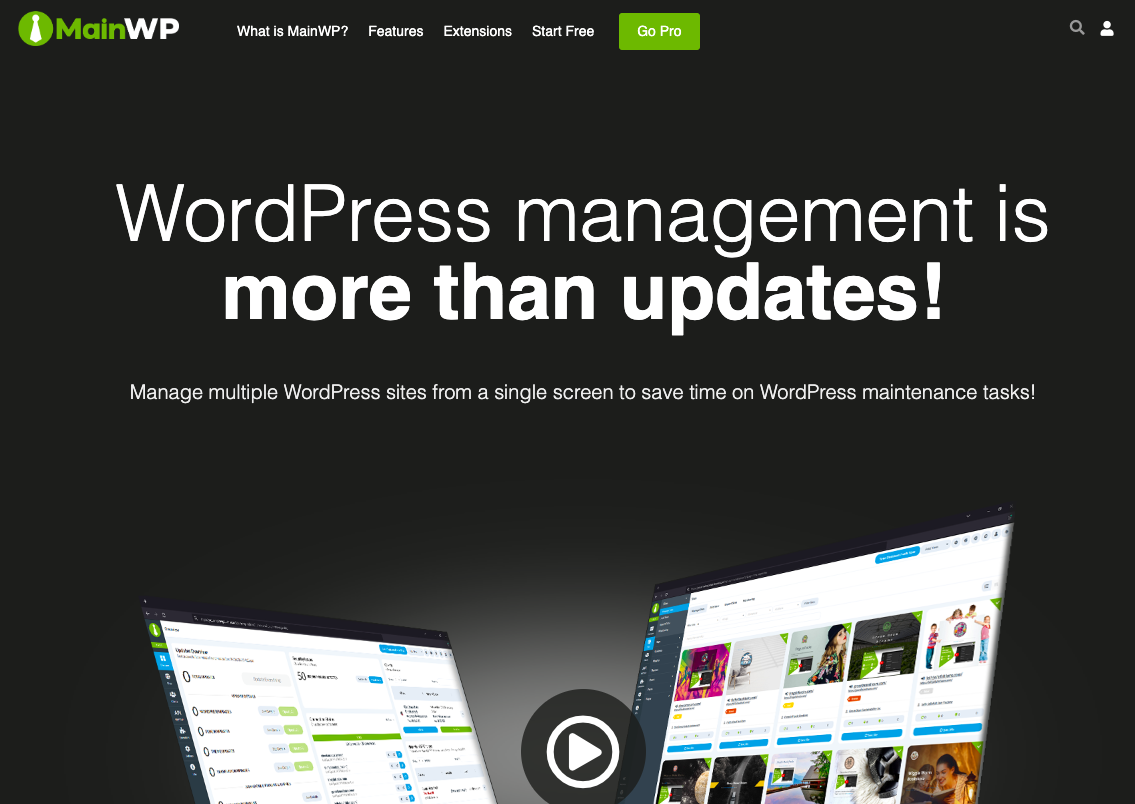
it operates on a self-hosted model, meaning you install it directly on your own server. This means that you have to install their dashboard plugin on one of your sites or subdomains. The child plugin needs to be added to other sites and they synced with the dashboard. This approach gives you full control over the management environment. However, it does raise some security concerns. If the site with MainWP installed gets hacked or crashes, you might lose everything.
Out of the box, MainWP only offers bulk updates. For all other functions, you need to install features from the Extensions tab. This means that you need to add on basic functionality like security and backup. We tested all their free extensions and didn’t find any that we would recommend. The security plugins available didn’t find any of our malware, and the backup plugins were problematic. For example, BackWPup is not intuitive. You have to create jobs. The backups are also not encrypted. and made it difficult to restore backups. Restores are also unavailable on this version of the plugin.
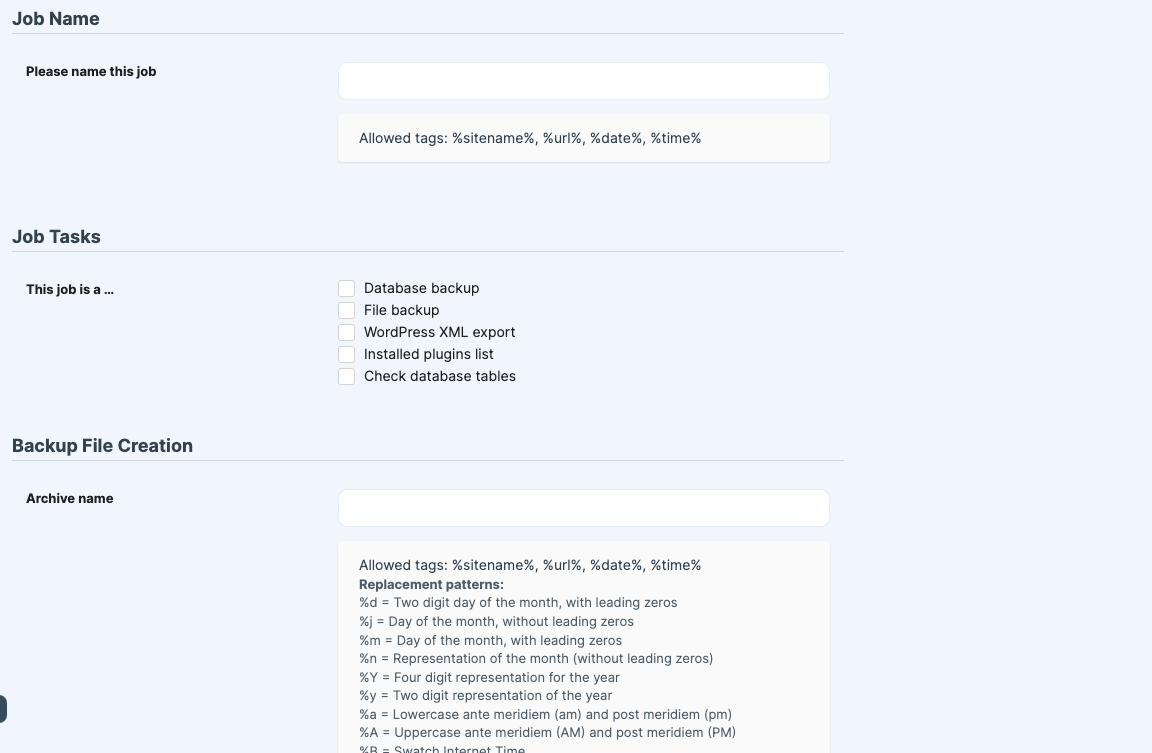
We also noticed that their dashboard lags a lot. You have to keep resyncing your WordPress site for accurate data to be reflected.
We’ve tested and compared MainWP and ManageWP in a more detailed article, in case you’re looking for further information.
Key features
- Self-hosted dashboard
- Add on extensions for backups and security
- Easy bulk updates
- Integrates with other tools
Pros
- Free version
Cons
- Self-hosted setup
- Difficult setup
- Requires multiple extensions for functionality
Price
The subscription plan ranges from $29 a month to $599 for a lifetime. But they have some free extensions that you can use without a subscription.
Final thoughts
When considering MainWP or ManageWP, there are a lot of factors to weigh. MainWP is self-hosted nature. It offers great control but demands a hands-on approach to security. If your MainWP dashboard is hacked, you’re in a world of trouble. ManageWP, on the other hand, has an external dashboard. This means that they’re responsible for the security of your sites.
Having to add multiple plugins to MainWP on each site can be annoying too. Meanwhile, ManageWP comes with inbuilt features: one tool for all.
Choosing the right tool will depend on your specific needs, technical capability, and willingness to manage certain aspects like security and integrations more manually. If MainWP’s limitations are significant concerns for your operations, exploring alternatives might be a wise decision.
7. Jetpack
Jetpack offers a unique approach to managing WordPress sites by allowing users to choose from one of their many packs of features. This flexible pricing model helps avoid spending money on unnecessary tools. However, Jetpack’s services have both strong points and limitations.
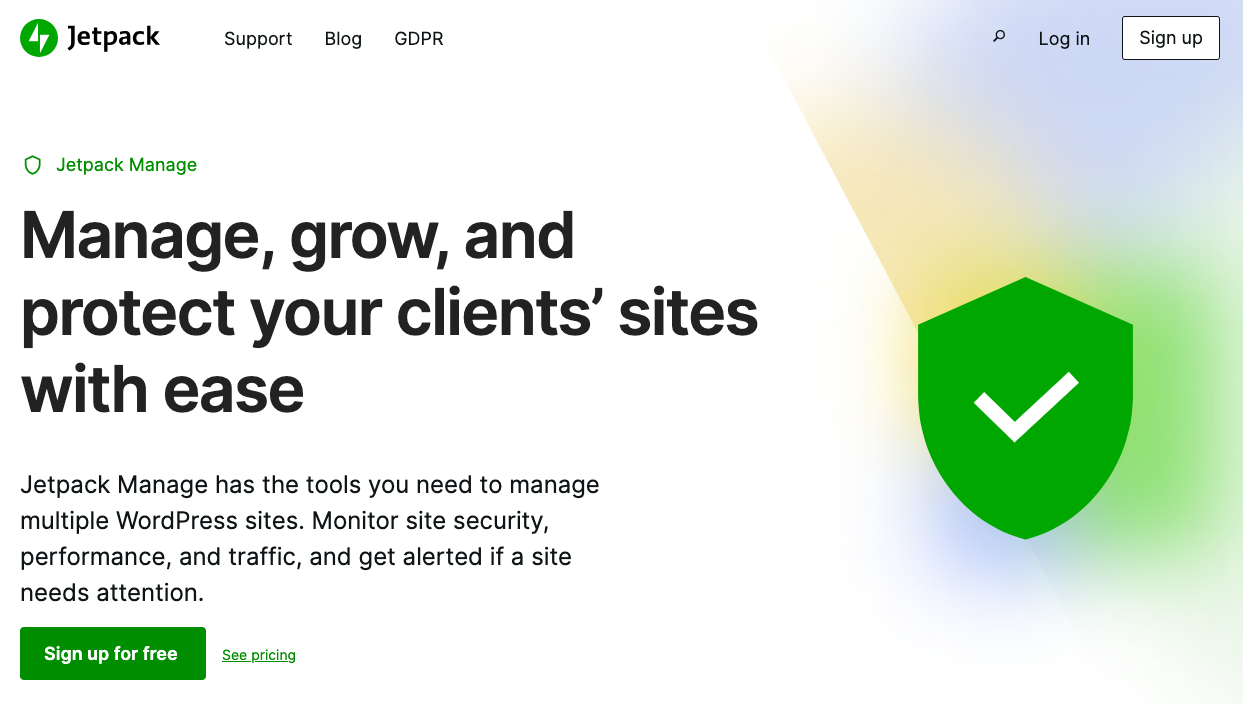
The platform provides unlimited backup storage, which is a major plus, similar to what you get with WP Remote. But, it doesn’t backup all site files, choosing to skip core WordPress files, which can be problematic when trying to fully restore your site.
For security, Jetpack includes a scanner in its paid plans that detects a few threats but isn’t as comprehensive as specialized security services. Moreover, without a strong firewall or dedicated malware removal services, you might need to supplement Jetpack with additional security measures to fully protect your site.
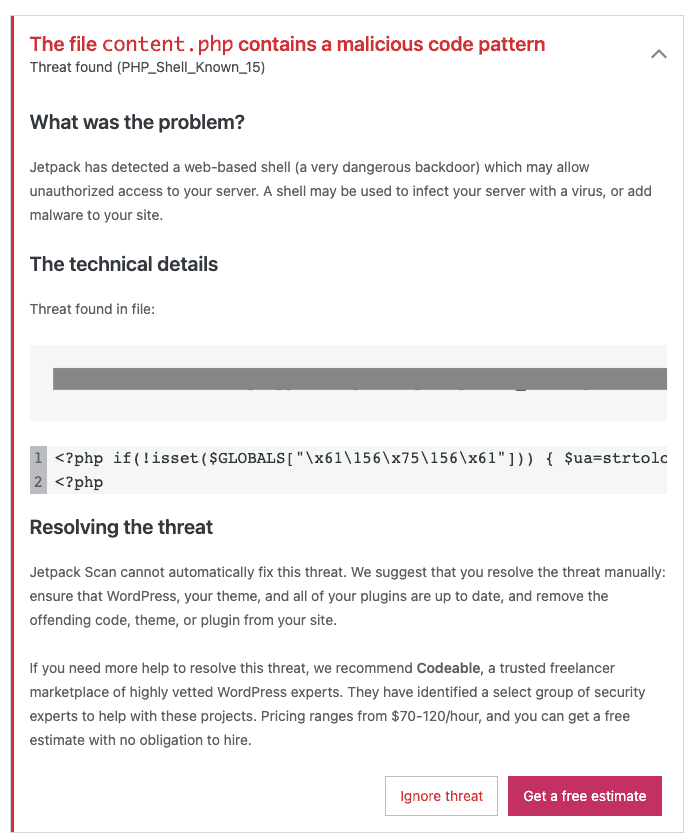
Key features
- Partial backups
- Malware scanning
- WordPress firewall
- Bulk updates
- Performance monitoring
- Customized reporting
Pros
- Flexible pricing
Cons
- Unreliable backups
- Unreliable security
- Complicated pricing
Price
The complete package costs $30 a month.
Final thoughts
We’ve reviewed different Jetpack products and were always disappointed. Their backup plugin, for example, fell apart when we wanted full backups. Their security plugin doesn’t pick up on basic malware either.
We would recommend ManageWP more. More reliable features at more affordable pricing.
8. SolidWP
SolidWP, previously known as iThemes, offers a suite of plugins designed to cater to various aspects of website maintenance, security, and management. Their main offerings include Solid Security, Solid Backups, and Solid Central, all aimed at providing a comprehensive toolset for WordPress website owners.
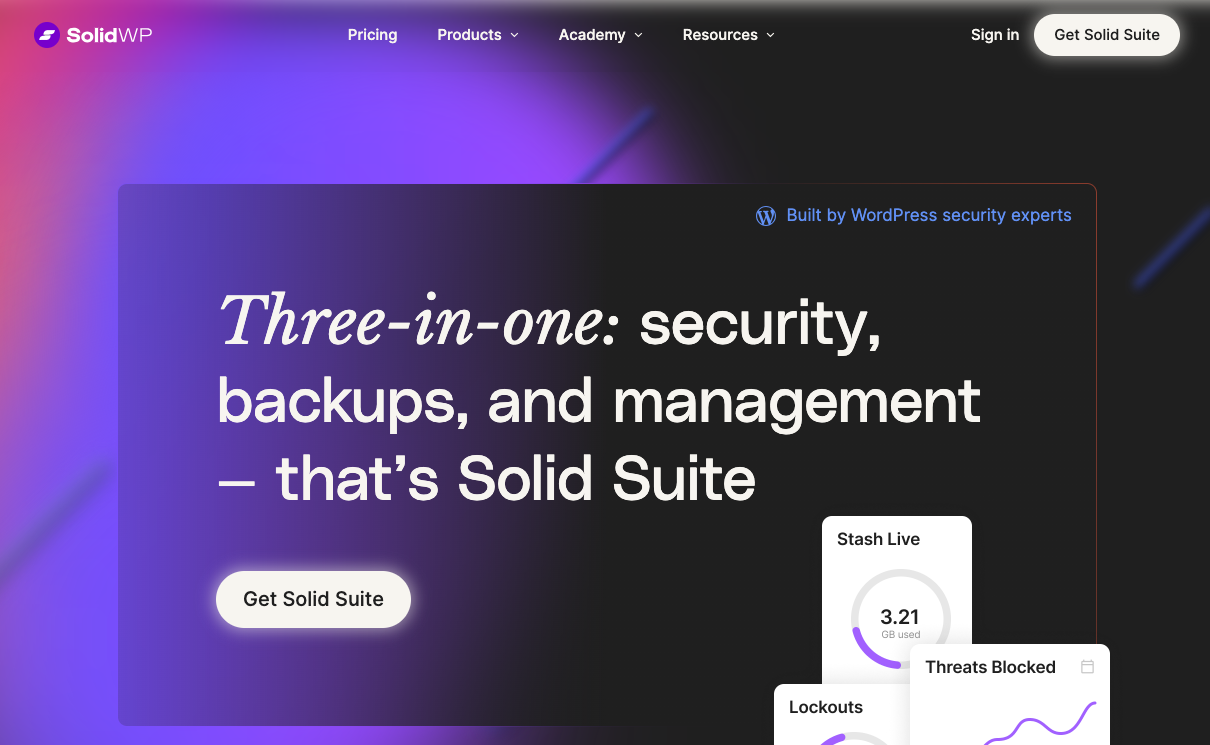
In spite of that, our previous experiences with SolidWP were less than satisfactory. The security features were a hit or miss. On one hand, they’ve integrated Patchstack, which is great. But, its not complete security. Solid Security was still missing a malware scanner.
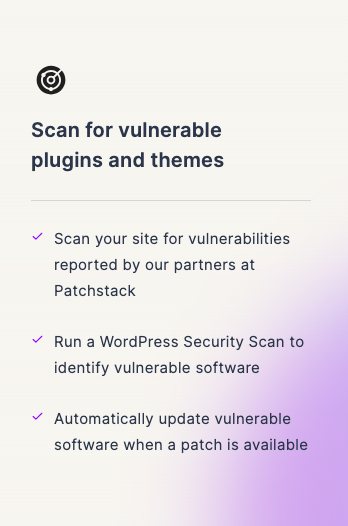
However, SolidWP recognizes the importance of customer satisfaction and offers a 30-day money back guarantee. This offers some peace of mind, giving new users the opportunity to test their services with the option of a full refund if they find the plugins do not meet their needs or expectations.
Key features
- Automated backups
- Regular malware scans
- Performance monitoring
Pros
- Easy setup
- 30-day money back guarantee
Cons
- Unreliable backups
- Limited features
Price: $349 a year
Final thoughts
SolidWP has been a really popular name in the WordPress sphere. It is surprisingly disappointing. We appreciate the rebranding though. Next up: better products, maybe?
9. iControlWP
We tested iControlWP and found several problematic things. For starters, we waited over an hour to backup our 700MB test site and it was still not done. Backing up an actual site would be excruciating.
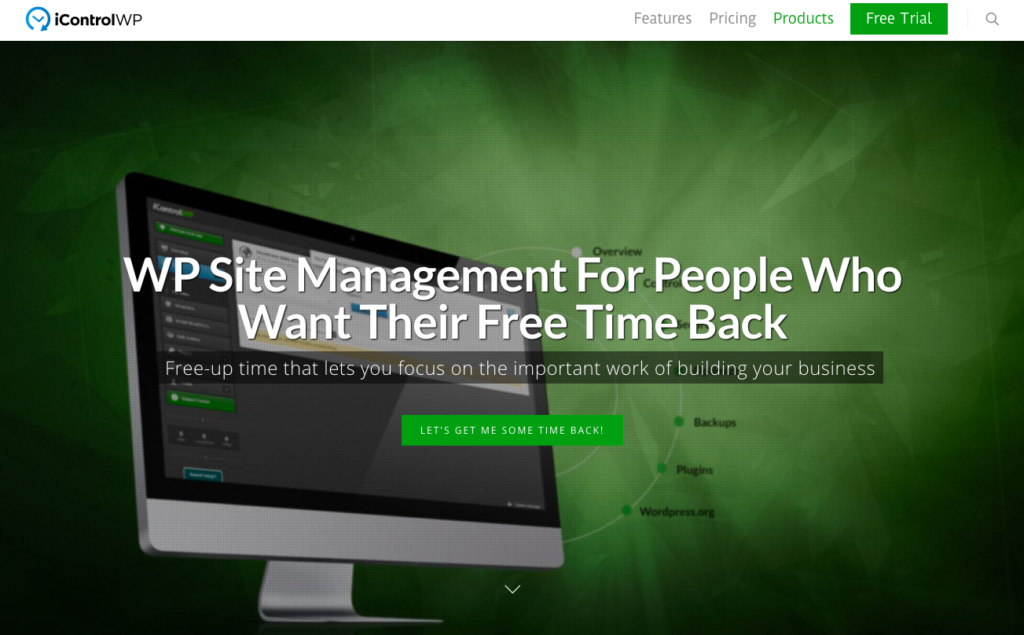
Second, their dashboard is not intuitive. They have menus for each feature that are difficult to navigate. Trying to find the scan button was like going through a maze—at every turn, a new page appeared.
They use the Shield Security Plugin for security. It was really hard to understand how a malware scan is run. When we finally ran a malware scan, it failed, with only a small error sign appearing to say that. No idea why, though, as there was no further information.
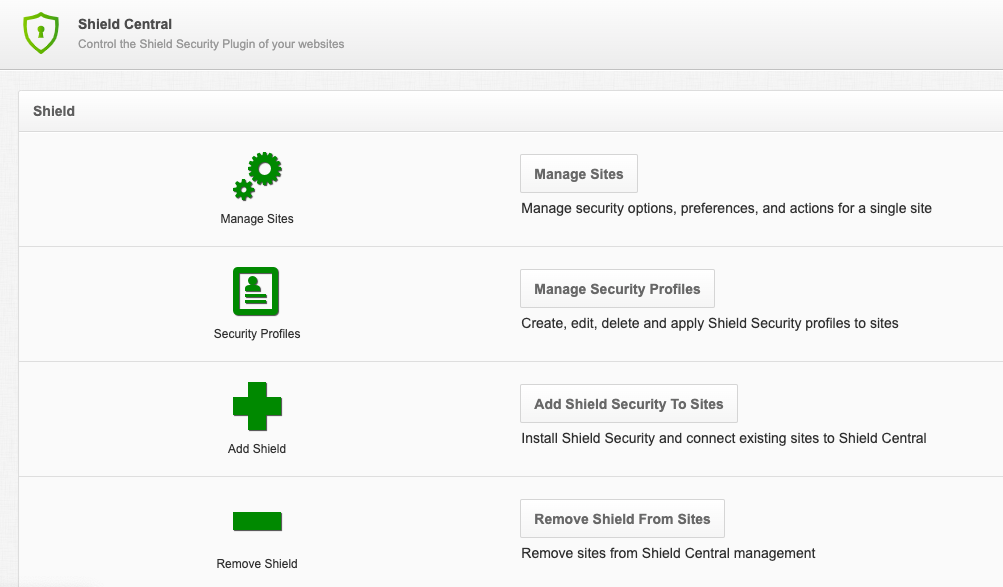
The setup was also a little frustrating. You have to add a lot of details about a WP site, like FTP credentials and admin credentials. This can be time-consuming.
Key features
- Malware scanner
- Backups
- Bulk plugin management
- Multi-factor authentication
- Test restores
Pros
- External dashboard
Cons
- Unreliable scanner
- Slow backups
- No backup scheduling
Price
Plans for 10 sites range from $15 to $39 a year.
Final thoughts
Choosing between ManageWP and iControlWP essentially boils down to what aspects of site management are most critical to you. If you are managing a smaller number of sites and prioritize a user-friendly interface, customizable reporting, and efficient backups, ManageWP could be preferable—provided you supplement it with a reliable security plugin.
However, if you’re managing numerous sites and are concerned about escalating costs and need a cost-effective solution, iControlWP might be better than nothing, despite some of its performance shortcomings.
What to look for in a ManageWP alternative?
When selecting a WordPress management tool, certain features are essential to ensure both the efficiency and security of managing multiple websites. Understanding why these features are necessary and what specific aspects to look for can help you choose the most effective tool for your needs.
Wrapping up
As much as it offers for free, the significant flaws in security force you to look for ManageWP alternatives. The malware scanner’s lackluster performance creates significant risks, as it frequently fails to detect malicious threats, leaving sites vulnerable to attacks.
Additionally, ManageWP’s pricing model can become quite costly as you scale up, adding more websites and features. This can make it an expensive option compared to other tools that offer more comprehensive features at a better value.
On the other hand, WP Remote emerges as a superior alternative, particularly for those who prioritize robust security and cost-efficiency. Unlike ManageWP, WP Remote boasts an effective malware scanner that reliably detects and helps mitigate security threats. This key feature, combined with comprehensive site management tools such as real-time backups before updates and performance optimization, ensure that your websites remain secure and operate smoothly.
Moreover, WP Remote’s user-friendly dashboard and straightforward pricing make it an accessible and budget-friendly option for WordPress site owners, regardless of their technical expertise or the size of their website portfolio. Given these significant advantages, WP Remote stands out as a more suitable and reliable choice for effectively managing and securing WordPress websites, especially for those disillusioned by the shortcomings of ManageWP.
FAQs
What is ManageWP?
ManageWP is a WordPress management service that allows you to control multiple WordPress websites from a single dashboard. It simplifies tasks such as updates, backups, monitoring, and security, offering both free and premium services to cater to various needs.
What is a WordPress management plugin?
A WordPress management plugin is a tool designed to help users administer multiple WordPress sites from a centralized location. These plugins streamline tasks like updating WordPress core, plugins, and themes, as well as managing backups, security, and performance across sites.
Why should I use a WordPress management plugin?
Using a WordPress management plugin can save time and reduce the complexity of managing multiple websites. It automates repetitive tasks, ensures regular updates, and helps you maintain consistent security practices, thereby improving efficiency and reducing the risk of website vulnerabilities.
Can WordPress management plugins help with website security?
Yes, many WordPress management plugins offer security features that help protect your websites. These may include malware scanning, security monitoring, vulnerability checks, and updates management to ensure your themes and plugins are always up to date, reducing the risk of security breaches.
Do management plugins affect website performance?
WordPress management plugins typically do not negatively affect website performance. With a good plugin, all management tasks are processed on the servers of the service provider, not on your hosting. However, there are the self-hosted versions which will certainly consume your site resources for the smallest task. Therefore, choosing a well-coded and reputable management plugin is crucial to prevent any potential performance issues.
How do I choose the right WordPress management plugin for my needs?
To select the right WordPress management plugin, consider factors like the number of sites you manage, specific features you need (such as security, backups, or updates management), ease of use, customer support quality, and pricing structure. Review and compare different options to find the plugin that best matches your requirements.
Are WordPress management plugins suitable for beginners?
Yes, many WordPress management plugins are designed with a user-friendly interface that is suitable for beginners. These plugins often offer guided setup processes and comprehensive support resources, making it easier for users with minimal technical knowledge to manage their sites effectively.
How do WordPress management plugins handle backups?
Most WordPress management plugins offer automated backup solutions. They allow you to schedule regular backups, store them in secure off-site locations, and restore your sites quickly in case of data loss. Options often include full site backups as well as more targeted backups of specific files or databases.
Can I manage plugins and themes with a WordPress management plugin?
Yes, one of the primary functions of WordPress management plugins is to help you manage plugins and themes across multiple sites. You can install, update, activate, deactivate, or delete plugins and themes from a centralized dashboard without logging into each site individually.
Do I need technical knowledge to use a WordPress management plugin?
While some technical knowledge can be beneficial, it is not strictly necessary to use a WordPress management plugin. These plugins are designed to simplify website management and often include numerous resources and support to assist users of all skill levels.
Are there any free WordPress management plugins?
Yes, there are free WordPress management plugins available, such as the free version of ManageWP. These free options often include basic features like updates management and limited backups, with more advanced features available through paid upgrades.
Category:
Share it:
You may also like
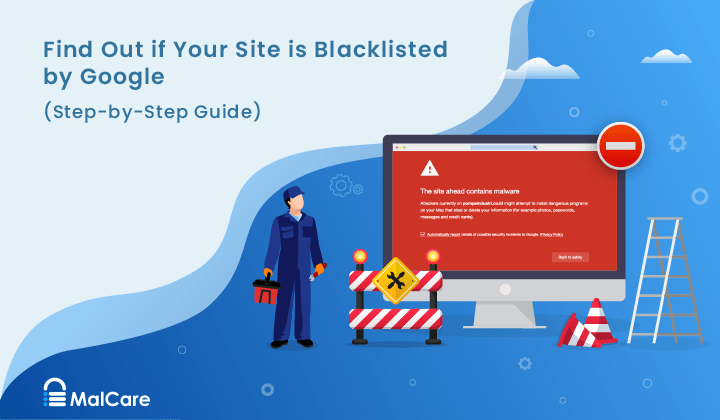
How to Fix the Google Blacklist Warning from Your Website
Google blacklist is a colloquial term used to describe big red warnings visible when visiting websites. There are a few flavours, depending on various factors, but they all mean that…
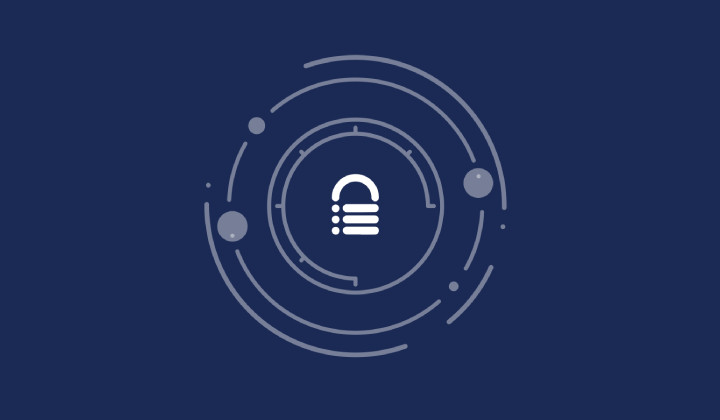
MalCare Stands Strong Against WP Activity Log Premium SQL Injection Vulnerability
A significant SQL injection vulnerability was identified in the WP Activity Log Premium plugin, a popular tool for tracking user activity on WordPress sites. An SQLi vulnerability poses a serious…
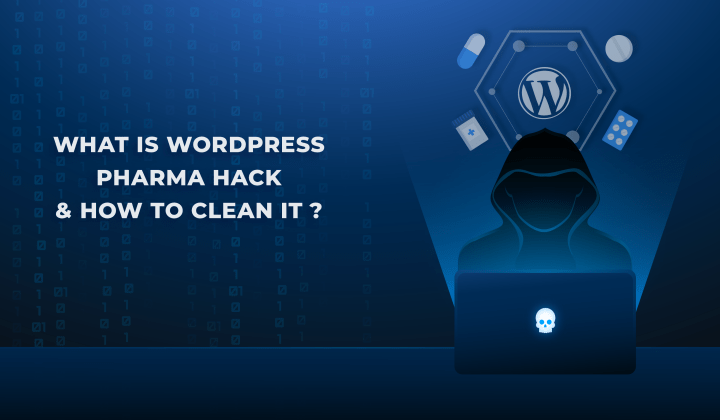
Fix Pharma Hack on WordPress and SEO
Pharma hack is a prolific malware that redirects visitors from your site to an online pharmacy that sells Viagra, Cialis, Levitra, Xanax, Tadalafil, and other drugs. It also shows up…
How can we help you?
If you’re worried that your website has been hacked, MalCare can help you quickly fix the issue and secure your site to prevent future hacks.

My site is hacked – Help me clean it
Clean your site with MalCare’s AntiVirus solution within minutes. It will remove all malware from your complete site. Guaranteed.

Secure my WordPress Site from hackers
MalCare’s 7-Layer Security Offers Complete Protection for Your Website. 300,000+ Websites Trust MalCare for Total Defence from Attacks.








